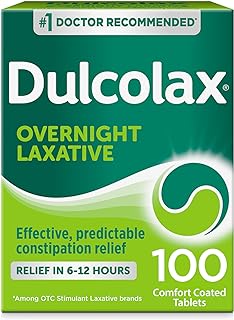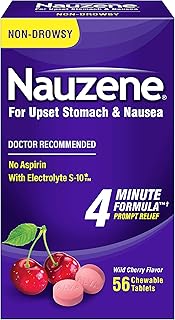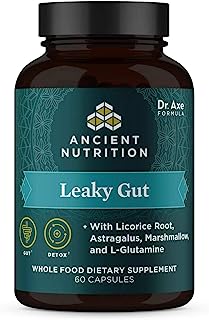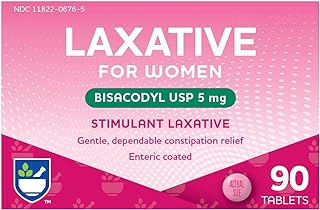5 important factors worth considering when looking for the best laxative after surgery
Choosing the right laxative after surgery is important for a smooth recovery. Your medical history and the effectiveness and side effects of the laxatives are vital factors to consider. Your decision can affect how well you recover. By carefully considering these factors, you can manage your bowel movements after surgery with confidence and have a successful recovery.
See our guide to the best laxative after surgery.
Type of laxative
Choosing the right laxative after surgery is important for your recovery. Some laxatives, like bisacodyl or senna, work quickly by causing the intestines to contract. However, they can cause cramping and discomfort. On the other hand, laxatives like polyethylene glycol work by drawing water into the colon, providing relief without as many harsh side effects. It’s important to find a balance between effectiveness and comfort when selecting a laxative, prioritizing both quick results and your well-being during recovery.
Adding a stool softener like docusate sodium to your chosen laxative can help with post-surgery constipation. Stool softeners make it easier for stools to pass through the colon, working together with laxatives to improve efficiency without sacrificing your comfort. It’s important to customize your approach to find what works best for your body and recovery. By understanding how different laxatives can affect your postoperative experience, you can navigate your recovery confidently and comfortably, promoting a smoother healing process.
Potential interactions with medications
When you’re buying a laxative after surgery, it’s important to think about how it may interact with any other medications you’re on. Laxatives can help with constipation, but some ingredients might not work well with your prescribed medicines, affecting how they work. That’s why it’s crucial to talk to your healthcare provider before adding a laxative to your post-surgery care routine. Taking care of your recovery means understanding how different medications can interact and affect your healing process.
Choosing the right post-surgery laxative means thinking about how it fits in with your current medication routine. You need to be careful and informed, making sure the laxative you pick works well with your treatment plan. Talking to medical professionals about potential interactions helps you make smart choices that support your digestive health and overall well-being after surgery.
Recommended dosage by healthcare provider
It’s important to follow your healthcare provider’s advice when buying laxatives after surgery. Your body is healing, so using laxatives incorrectly could make things worse. Your healthcare provider knows the right dosage for you and your specific health needs. It’s better to listen to them than to guess or follow what others say.
Following your healthcare provider’s instructions for taking laxatives not only helps your health but also supports your recovery. The right dosage is designed for your condition to work effectively and safely. Trusting your healthcare provider’s knowledge is key to caring for yourself after surgery, helping you heal well and stay healthy. Remember, it’s best to be careful and precise with laxatives after surgery instead of trying things on your own for the best results.
Side effects and risks
After surgery, it’s important to be cautious when considering using laxatives to relieve constipation. Using laxatives without thinking about the possible side effects can cause problems like dehydration or imbalances in the body. These issues can lead to more health problems, especially right after surgery when the body is vulnerable. It’s important to think about the short-term relief of using laxatives versus the long-term effects. It’s best to talk to healthcare professionals for advice tailored to your specific situation.
Buying laxatives without a prescription can make you feel like they are safe to use, but they can actually be harmful if not used correctly post-surgery. Without proper guidance, you could make your recovery harder without realizing it. While it might be tempting to use a quick fix, it’s better to focus on overall health instead of temporary solutions. By being mindful of the risks and talking to healthcare professionals, you can protect your health and have a smoother recovery.
Speed of effectiveness
When buying a laxative after surgery, it’s important to think about how quickly it works. Fast relief is crucial in these situations, not just a nice bonus. Choosing a laxative that works quickly can really help you feel better and support your body’s healing. Waiting too long for relief can make you feel worse and might cause more problems, so it’s smart to pick a product that’s known for working fast and reliably.
Even though cost and brand loyalty might affect our choices, focusing on how fast a laxative works after surgery can greatly impact how we feel overall. Buying a product that helps with bowel movements quickly and gently can ease discomfort, speed up recovery, and improve your post-surgery experience. Prioritizing speed in how well it works shouldn’t be overlooked, as it can really make a difference in how smoothly you recover.
Conclusion
After considering all aspects, it is clear that using laxatives after surgery should be approached carefully. While they can help with constipation, it’s important to think about any possible side effects and how they could affect recovery. Finding a balance between the good and bad sides of laxatives is crucial. It’s important to focus on personalized care and getting medical advice that fits each person’s needs. By looking at the big picture, patients and healthcare providers can work together to make sure post-surgery recovery is as comfortable and healthy as possible. Want more info on chutney, check the best chutney.



